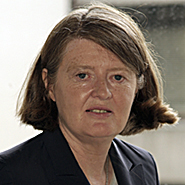James Joyce’s Dublin years
Mary E. Daly
James Joyce’s Dublin years, from his birth in 1882 until he eloped with Nora Barnacle in 1904 can be seen as a microcosm of the city’s political and social history. They include the heady years of the mid 1880s when Home Rule appeared imminent; the collapse of these expectations and bitter divisions following Parnell’s divorce and death; the centenary of 1798, the Boer War, and Queen Victoria’s final visit in 1900, one year before her death. Both parents were members of that important, but under-researched community – the urban Irish Catholic middle-class. His father inherited business and property interests in Cork; his mother’s family owned a pub and grocery business – a common route to prosperity for Dublin Catholics. Joyce could claim kinship with Daniel O’Connell, and Peter Paul MacSwiney, lord mayor of Dublin in 1864, and 1875, and a leading city businessman (owner of what is now Clery’s department store). Dublin society provided opportunities to mix with current or former political figures, not just Home Rulers, but ex-Fenians: the lines between physical force and constitutional politics were less clearly-drawn than some historians suggest.
Joyce’s father moved to Dublin as secretary and investor in a new whiskey distillery.
When that venture failed he found employment as a collector of taxes: like many government positions at the time, he got the job through patronage. But times were changing, and education was becoming more important in securing stable employment. The 1879 Intermediate Education Act awarded scholarships to top-performing students and performance related-bonuses to schools; Joyce, and Eamon de Valera, also born in 1882, were among those who were awarded scholarships of £22 a year (half a labourer’s annual wages), which ensured that Joyce continued in school even as family fortunes declined. His education at University College Dublin, then a small Jesuit-college, was funded by a bequest from his godfather. Medicine, law, the church and the civil service – in Ireland, Britain or the Empire, were the most highly-sought careers, but many graduates had to leave Ireland; a majority of Irish medical graduates emigrated.
Joyce’s early childhood was spent in the elite Victorian suburb of Rathgar where Catholic households were in a minority, and in the equally respectable Bray and Blackrock. When family fortunes declined they migrated north of the Liffey to Drumcondra, Fairview and the north city. Regular house moves were not unique to the Joyces; most middle-class families lived in rented houses. They moved house as families became larger or smaller, or economic circumstances changed. They may even had owned property while living in rented houses; property was seen as an investment, though by the 1880s prices were falling and continued to decline until the early twentieth century. There were many middle-class Dublin households consisting entirely of single women, surviving in genteel respectability like the Morkans in Joyce’s The Dead; families of retired military or colonial officials were also common.
The cultural background of Joyce’s family and peers was diverse; Moore’s Melodies were popular, likewise English Victorian literature and music. Interior design, house styles and diet were strongly influenced by English trends. European culture was transmitted through museums, art galleries visiting opera companies, and most of all through the Catholic church, where new churches erected throughout the city and suburbs were adorned with European art, and the liturgy and music was that of the Tridentine church.
Many of Joyce’s contemporaries at UCD became prominent figures in the new Irish Free State. Joyce, by leaving Dublin before the city was reshaped by the 1916 Rising and the aftermath, retained the spirit of the city in the final years of the Union.
Professor Mary E. Daly is a member of the UCD School of History and Archives. Her book, Dublin the deposed capital, 1860-1914 has just been reissued by Cork University Press.

